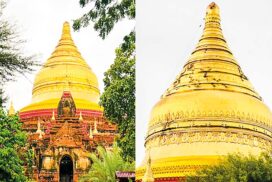By Hu Wo (Cuckoo’s Song)
According to Oxford, novels are stories long enough to fill a complete book, in which the characters and events are usually imaginary. The word `long’ should herein be highlighted in that many different points of view on novels have arisen compared with short stories. Some writers say that novels and short stories cannot be categorized only depending upon their length, for some novels based on the only subject matter, especially all about a character, may be listed as a short story even though they are a long one. This means that more than one character, event, or plot is widely, intricately, and serially described in many novels, and they cannot be read in one setting as usual. As far as I can see, any story that a person is not able to read only once must be called a short-story-like novel despite the fact that it takes place in only one. Of course, reading a great novel appears, watching a colourful scene in the very movie. There are various types of novels in the world of literature: romance, detective, historical, popular, graphic, classic, literary, modern, autobiographical, and unfinished.
There are many famous novels in Myanmar literature that I have ever read. Out of those novels, Naw Yin Mgwe is my favourite as well. This novel was written by Mya Thanda, a female writer from Myanmar, whose real name is Daw Thanda. She was born to U Mya Thein and Daw Tin San Myint in Yangon on 15 August 1958. She had a BA in Myanmar from a correspondence course at university. She first set foot in the field of literature with the short story `Ngalonetharma Sagapyawthan’ (Words from the Heart) in Ngwetaryee magazine and has written not only 79 novels but also over 200 in total of short stories and articles until now, as far as I can remember.
Sayama Mya Thanda started writing her debut novel Naw Yin Mgwe while moving to serve as a staff of Myanmar Insurance Business in Phew Township in 1982. Having served nine months in Phew and nearly two years in Taunggoo, she wrote the novel based on her work experience by going on a field trip to study farmers and Karin traditions. At her early puberty of about 17, Naw Yin Mgwe, a little Karin girl, grew up childishly in the care of her father and elder sister, Naw Tawharma, not quite comprehending life’s sufferings. Meanwhile, she fell in love with a school teacher. But their happy days did not take long. Her life made a U-turn. In the middle of her family of three going to another village for her sister’s childbearing, she died in childbirth on the way there, unfortunately. Just at the same time, her father died from snakebite over there the moment he got down from the bull cart to fetch a child breeder (called `latthe’ in Myanmar) as soon as possible. Naw Tawharma gave birth to a girl named Naw Thae Sue. In order to get a chance to adopt her conditionally, Naw Yin Mgwe unwillingly married her brother-in-law, Ko Soe. Despite this, they were separated very soon on account of his previous marriage, which she had not yet known. Then later, Naw Yin Mgwe worked hard as a nurse only because of her beloved niece, Naw Thae Sue, even though she could join the University of Medicine with her matriculation examination marks. Meanwhile, she had to meet Dr Han Kyi, who was madly keen on her. What would happen next? Which theme and how did Sayama Mya Thanda endeavour to write the novel so as to arrive at a satisfactory ending? How interesting are these questions?
Naw Yin Mgwe is a romantic novel of mixed love, the way I see it. In the novel, Naw Yin Mgwe is a round character, and the others are flat characters. Since there was no publisher who would like to distribute this novel at first, it was edited in 6 years up to three times, as Sayama Mya Thanda said. Fortunately for her, she achieved first prize in the Sarpay Beikman Novel in 1989 and then the National Literature Award in 1991 for that novel. Again, as the novel was made into a film, Soe Myat Thuza, a female Myanmar actress, obtained her first Academy Award for Woman Character for the character of Naw Yin Mgwe.
Interestingly enough, Saya U Tha Noe once said that reading a novel is better than studying a book on psychology simply because more human nature can be seen in the novel together with the physical, oral or psychological manner of the character. Most novel readers look for happy endings only after finishing the novel. That should not be so, actually. A novel ought to end in an appropriate finale — to be said better, a satisfactory ending — critically and logically, whether it makes a reader happy, satisfied, or not. Any novel has to come to an end not only for readers but also for authors objectively rather than subjectively. Readers will be able to read some novels worth very little literature value just for pleasure, but some in-depth, which tell many truths about life. In actual fact, reading novels is beyond daydreaming, having fun, relieving boredom, or even taking a liking.











